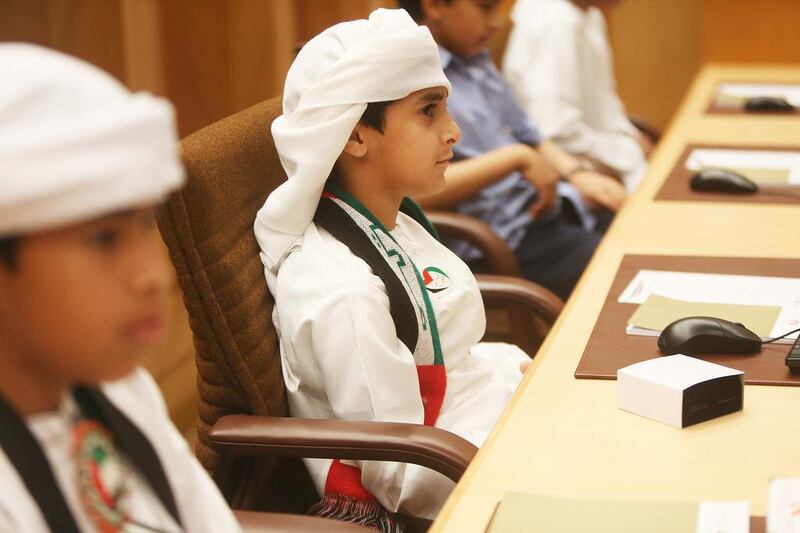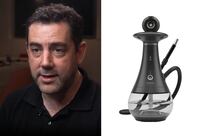ABU DHABI // Monday was much like any other day at the Federal National Council. The chamber was packed with Emirati officials and an audience eagerly awaiting the start of a new session.
But instead of council members, pupils filled the seats.
The youth council, 54 boys and girls from government schools across the country, was elected at the start of the academic year to make up the country’s first schools parliament, a joint venture between the FNC and the Ministry of Education.
Pupils were keen to take part, despite not knowing what their eventual role on the council would be.
Mayed Hazim, 16, from Ras Al Khaimah, sat among the council yesterday, not quite sure what was going to happen next.
“We found out about this in an announcement. This is still our first meeting,” Mayed said.
But as the day progressed, their task became somewhat clearer as they were asked to take on the same role as the FNC.
Humaid Al Qattami, Minister of Education, stressed the importance of their job.
“Through the [schools parliament] pupils will be prepared to take responsibility towards their country and society and take care of their country’s gains,” Mr Al Qattami said.
“We are sure our children are up to this task and will give what they can to the country.”
Pupils will bring to the council issues concerning their schools, community and families.
The council will meet for public debate at FNC headquarters seven times in their first term, and another seven in their second.
During those sessions, they can ask any government official to explain in detail any issue, and the significance of procedures taken.
They can quiz a government official, give notice to a minister for something they believe has been missed or ignored, hold a public discussion on an issue, or give suggestions to government officials.
Mohammed Al Murr, the FNC speaker, said the schools parliament would help to encourage freedom of expression as pupils were introduced to politics.
Mr Al Murr said the project was launched after an in-depth study of youth parliaments in other countries.
“Arab youth complain of being neglected and left out when it comes to politics and the country’s development,” he said.
“Our leadership looks into getting youth involved and taking part. We hope this will play a role in developing and starting a dialogue and increase knowledge of social participation.”
Mr Al Murr said the children’s suggestions would not be sent to Cabinet as they would with the FNC, but Dr Mona Al Bahar said important discussions would not be dismissed.
Dr Al Bahar said the programme would also help to educate young people about elections.
She hoped that in time, the experience would teach them to elect candidates based on their merits and not for tribal reasons, as was sometimes the case in the 2011 elections.
“So if they aim to be a member one day they will feel the need to create a name for themselves, work harder in society,” she said.
“And if they are a voter, they will know who to vote for and based on what.”
Dr Al Bahar said it would help to broaden the pupils’ scope of concerns from personal issues to those affecting their society.
As for Mayed, one of the first issues he will bring to the council is smoking in schools.
The students’ parliament is made up of different age groups, and includes seven special-needs children.
osalem@thenational.ae






